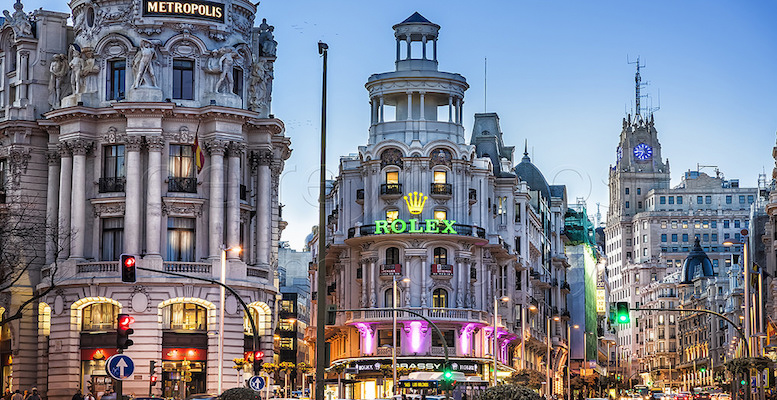Luis Alcaide | In most European states the wealth tax has been abolished. Only France has kept it for the taxpayer, but without physically suffocating the taxpayer. Another thing is the municipal taxes on property tenure, which exist almost everywhere in the world.
The latter are key to local budgets, based on the occupation of a municipal space and in return for the services of police and real estate surveillance, municipal police, fire brigade. In addition, the protection of the environment by preventing the presence of noise or any activity that disturbs the lives of residents. In Switzerland, these requirements are scrupulous. In the most prosperous Europe there is no taxation of property assets, although the municipal charges are higher than in Spain.
The argument for the abolition of wealth tax has two main explanations. Firstly, there are the owners of SMEs, for example, whose viability depends on the vicissitudes of the market. They would bear an additional tax burden to that of corporate tax or personal income tax on any dividends. This would amount to double taxation.
Secondly, when assets are passed on, e.g. the company to the heirs, it was observed, especially in Germany, that the heirs were reluctant to continue the business. But nobody wanted to shoot themselves in the foot, as the Anglo-Saxons say.
In Spain in the early years of democracy, the tax authorities, who had been in a secular tax limbo, wanted to check the tax return against the taxpayer’s assets.
In the United States and the European Union, wealth tax, as well as income tax and corporation tax, are federal or national taxes, if you prefer, and their regulation is not delegated to any territorial entity. In Spain, however, it was incorporated into the autonomous regional process. As a result, there are tax differences between territories. Those with lower expenditures or a broader tax base could more easily offer fiscal generosity to their residents. All the autonomous communities have devolved responsibility for education and health. The same is not true for infrastructure provision. Madrid, for example, has the most important airport in Spain or the main railway hub. Both structures are paid for with state taxes.
These tax differences derived from objective facts allow for enormous discrimination in property taxation. A foreigner who decides to live in Andalusia and whose universal wealth amounts to 10.7 million euros would pay an annual tax of 183,670 euros. Meanwhile, a foreigner who decides to live in Madrid, Lisbon or the Portuguese Algarve would be exempt from this taxation.
Andalusians are haughty
In the case of Andalusia there is an additional argument. Indeed, since the failed agrarian reform and the continuation of the large estates, there is an abysmal difference between the gentlefolk and the artisans. However, in Andalusia these inequalities have been corrected by the improvement in the incomes of the working and middle classes. Many Andalusians have become landowners. Perhaps one more explanation why the PP and Ciudadanos, with the support of Vox, gained a majority over the PSOE.
Andalusia now has all the requirements of a real pole of attraction for foreign investors. Naturally the richer or more brazen they are, the more they will find ways to defend themselves. They will live in Andalusia and register in Madrid, for example, or they will take their wealthy investments to Portugal.
When Felipe González’s PSOE won the elections with an absolute majority, after the Tejerazo (the February 1981 Coup) it should not be forgotten that the Socialist secretary general had rejected Marxism, i.e. Stalinist communism, loud and clear. However, in his homeland, the historical differences of heritage could not be forgotten. At this point in time, perhaps the government of Pedro Sánchez will not find it easy to abolish the wealth tax and align itself with the taxation in other EU countries. There will be resistance from the left or from those demanding more autonomous powers. Will we shoot ourselves in the foot?





